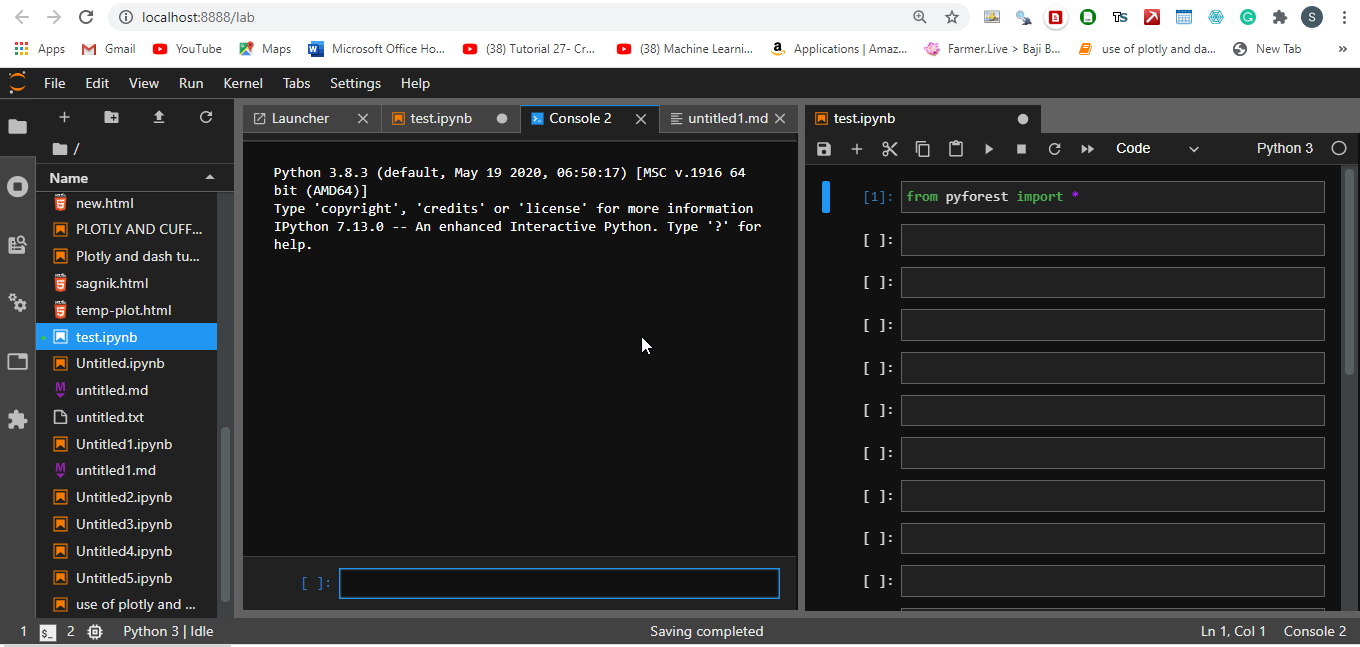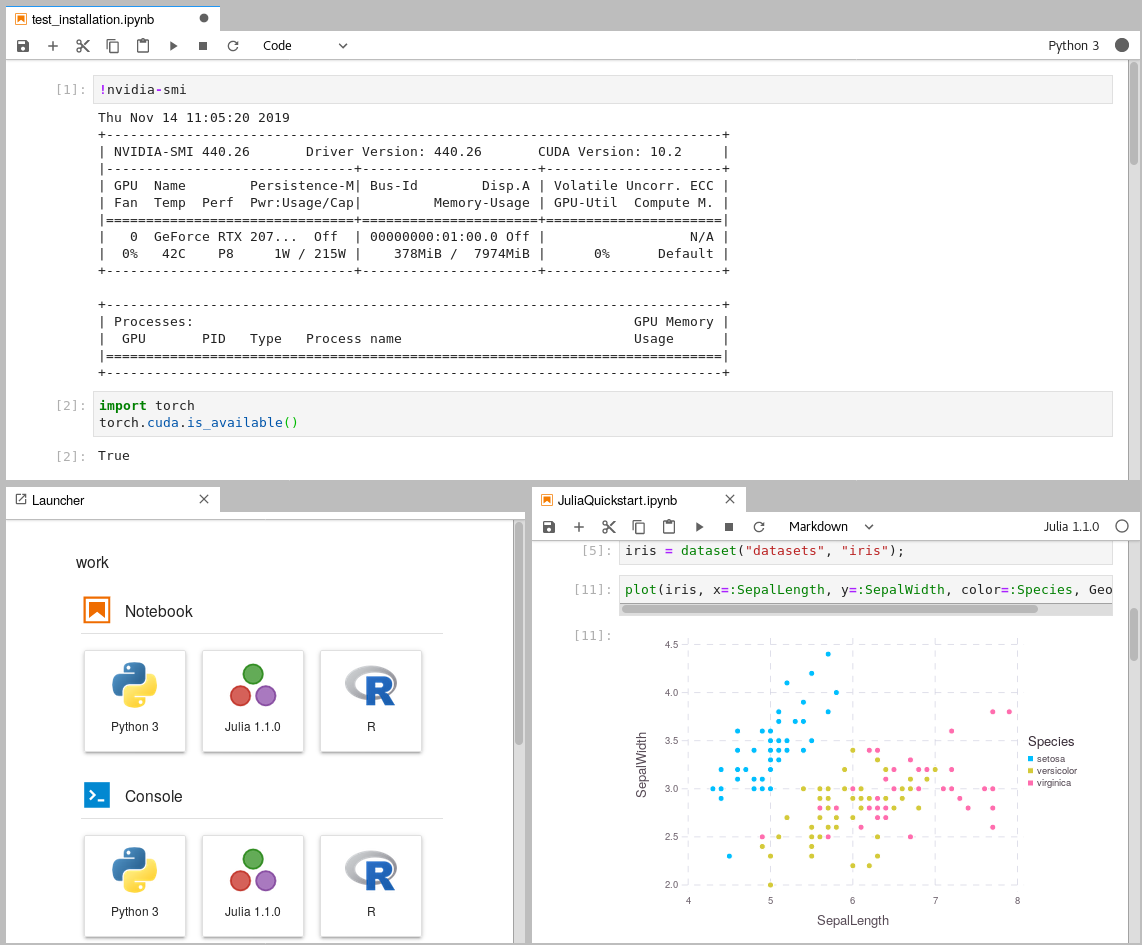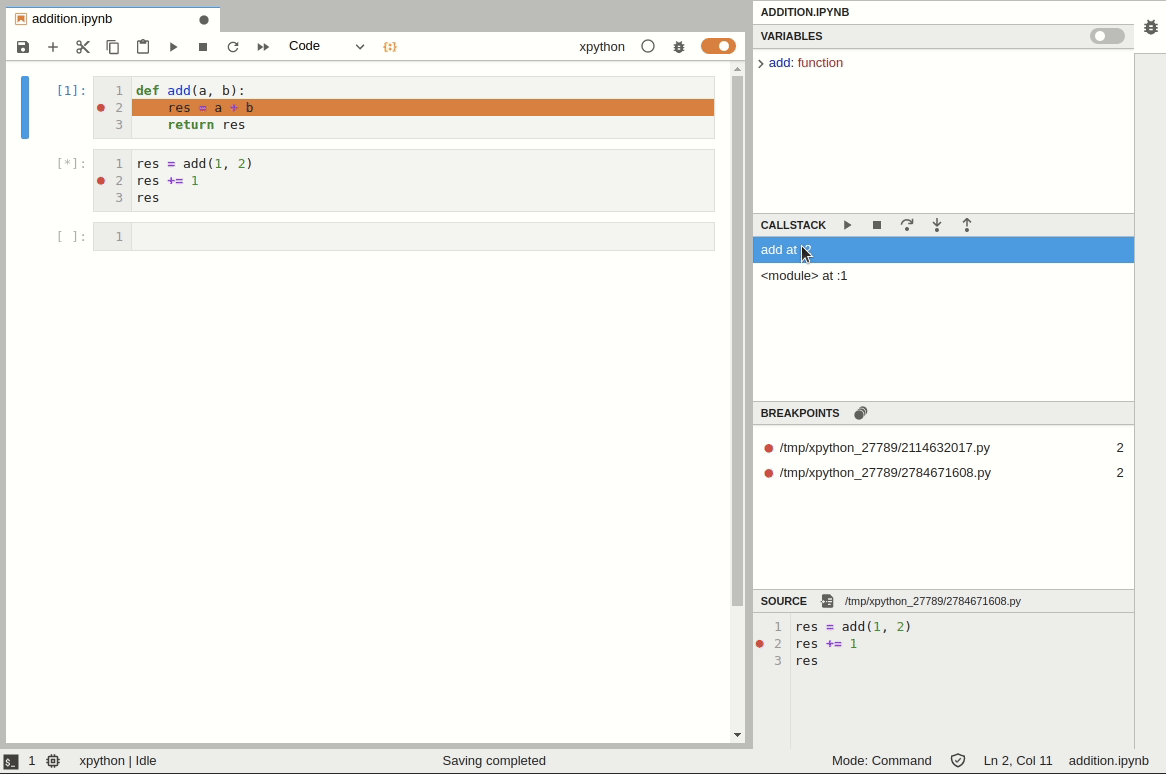

Using the Thoth resolution engine, you can request an optimized software stack that satisfies your requirements from the Thoth recommendation system. In the future, users will be able to select a specific resolution engine. This setup guarantees that the user will receive the software stack to work on their projects. Two resolution engines are available at the moment: Thoth and Pipenv.Ĭurrently, Thoth is used by default, with Pipenv as a backup. This way, anyone using the same notebook can re-create the environment that the original developer used. The notebook metadata stores these files and information about the Python version, operating system, and hardware detected. The Pipfile.lock file states all direct and transitive project dependencies with specific versions and hashes. The resolution engine you use to lock dependencies provides two files: a Pipfile and a Pipfile.lock. Locking dependencies with Thoth or Pipenv
Jupyterlab debug install#
Once again, you can just install the dependencies and start working on your project. This extension lets you manage your project's dependencies directly from a Jupyter notebook, as shown in Figure 3. The Thoth team has introduced jupyterlab-requirements, a JupyterLab extension for dependency management that is currently focused on the Python ecosystem. Dependency management with jupyterlab-requirements Project Thoth aims to help you specify direct and transitive dependencies so that your applications are always reproducible and you can focus on more pressing challenges. You should share all of this information so other users can experience the same behavior and obtain similar results. To be even more precise, the Python version, operating system, and hardware all influence the code’s behavior. To guarantee reproducibility, you must account for all dependencies with specific version numbers for direct and transitive dependencies, including all hashes used to verify the provenance of the packages for security reasons (check these docs to learn more about security in software stacks).

Even if you stated the direct dependencies with the exact version number, each of those dependencies might depend on other so-called transitive dependencies that are also installed. The same issue can arise with the requirements.txt file, only with the package names. They might experience different behavior from the initial notebook output. In the first scenario, let's say another user tried to rerun the same cell sometime after a new version of the library was released. This way, the next user can run the same cell and install similar packages.ĭo you see any issues with these two approaches to specifying dependencies? One approach to this task is to run a command in the notebook cell to install the dependencies directly on the host, as shown in Figure 1. For example, your project might depend on pandas for data exploration and manipulation or TensorFlow for training a model. Let’s consider one of the first steps for developing an application: specifying dependencies. Ensuring that others can rerun experiments in the same environment the creator used is critical, especially when developing machine learning applications.
Jupyterlab debug code#
When creating code or conducting experiments, reproducibility is an important requirement. Making application dependencies reproducible As you will learn, using the jupyterlab-requirements extension is a smart and easy way to ensure that your code and experiments are always reproducible.

This article introduces you to jupyterlab-requirements, a JupyterLab extension for managing and optimizing Python dependencies in your Jupyter notebooks. Thoth integrations use this knowledge to provide software stack recommendations based on user inputs. This machine learning approach is implemented in Thoth adviser, a recommendation engine for Python applications. ( Watch this video to learn more about resolving dependencies with reinforcement learning.) Thoth uses machine-generated knowledge to boost your applications' performance, security, and quality through reinforcement learning with artificial intelligence. Project Thoth develops open source tools that enhance the day-to-day lives of developers and data scientists. JupyterLab 3.0 was released in January 2021. Its interactive user interface (UI) lets you use terminals, text editors, file browsers, and other components alongside your Jupyter notebook. JupyterLab is a flexible and powerful tool for working with Jupyter notebooks.


 0 kommentar(er)
0 kommentar(er)
